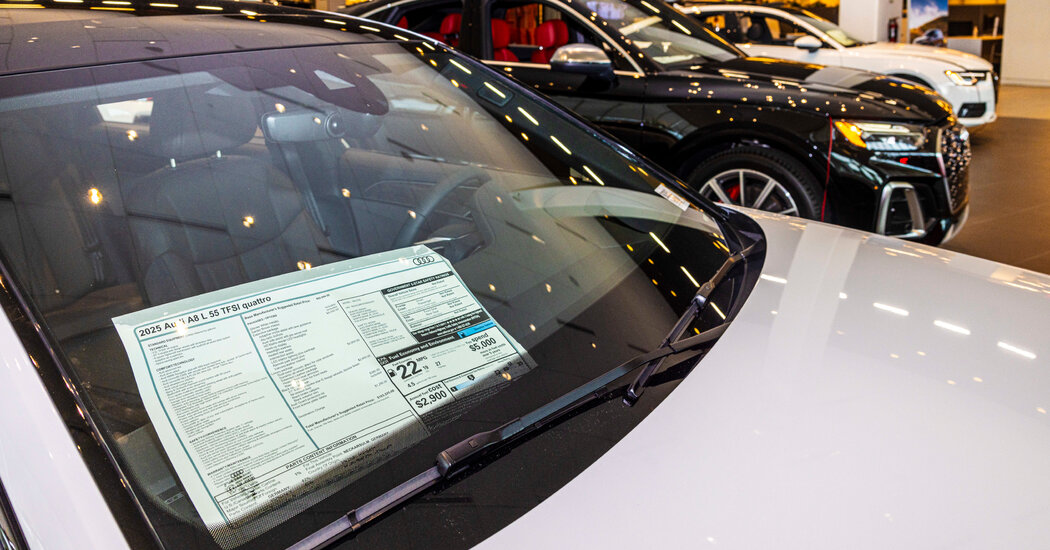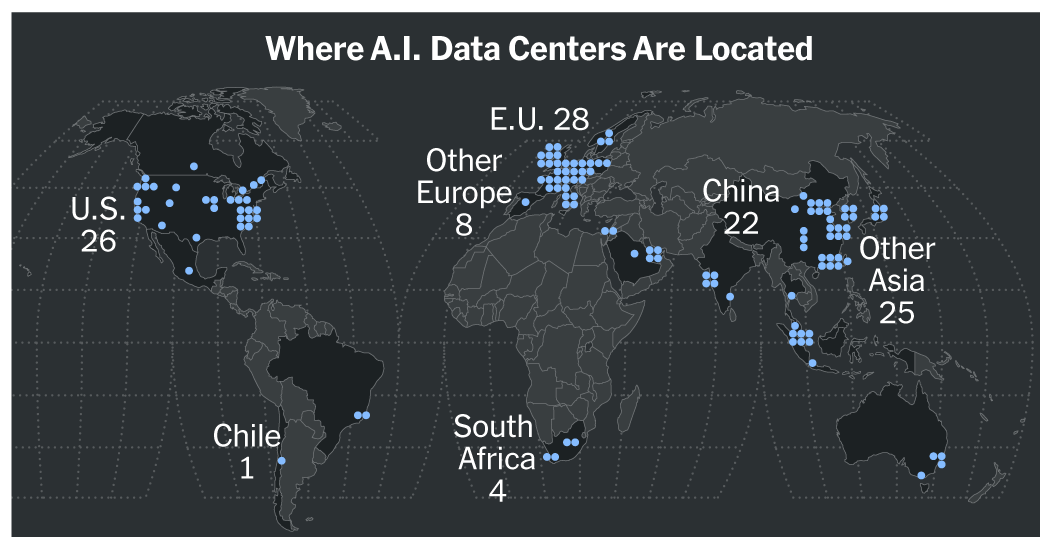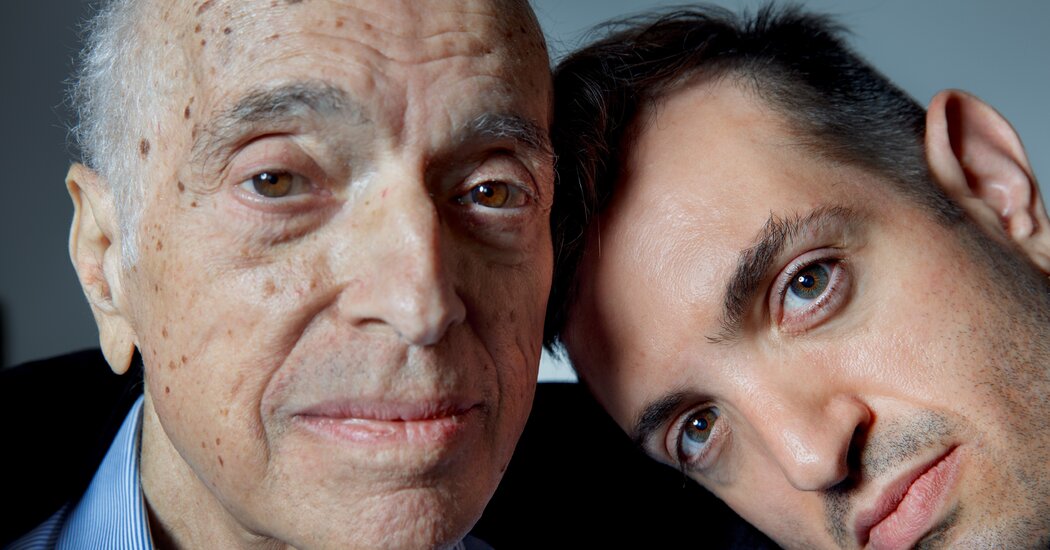Tariffs on imported vehicles took effect Wednesday, a policy that President Trump said would spur investments and jobs in the United States but that analysts say will raise new car prices by thousands of dollars.
The 25 percent duty applies to all cars assembled outside the United States. Starting May 3, the tariff will also apply to imported auto parts, which will add to the cost of cars assembled domestically as well as auto repairs.
There will be a partial exemption for cars made in Mexico or Canada that meet the terms of free trade agreements with those countries. Carmakers will not have to pay duties on parts like engines, transmissions or batteries that were made in the United States and later installed in cars in Mexican or Canadian factories.
That provision will reduce the impact on vehicles like the Chevrolet Equinox electric vehicle, which is assembled in Mexico but includes a battery pack and other components made in the United States. General Motors will pay a tariff only on the portion of the car made abroad.
At the same time, the duty on parts will raise the cost of cars made in Michigan, Tennessee, Ohio or other states. That is because most cars rolling out of U.S. factories contain components made abroad, often amounting to more than half the cost of the vehicle.
About 90 percent of the value of some Mercedes-Benz cars made in Alabama, for example, is in engines and transmissions that are imported from Europe, according to data compiled by the National Highway Traffic Safety Administration.
The impact of the tariffs on individual vehicles will vary widely. Cars like the Tesla Model Y, made in Texas and California, or Honda Passport, made in Alabama, have high percentages of U.S.-made parts and will pay lower tariffs.
Tariffs will be highest on cars manufactured abroad, like the Toyota Prius made in Japan or Porsche sports cars made in Germany.
Even people who don’t buy new cars will be hit by the tariffs because they will pay more for parts like tires, brake pads and oil filters.
Michael Holmes, co-chief executive of Virginia Tire and Auto, a chain of auto repair and maintenance shops, said he and his suppliers would initially try to absorb most of the increased cost.
“That’s not sustainable,” Mr. Holmes said. “It’s magical thinking to think businesses won’t pass this on.”
The auto tariffs could also push up prices for used cars over time, analysts said, by increasing demand for those vehicles as new ones become unaffordable for many buyers. Insurance premiums may also rise because repairs will cost more.




